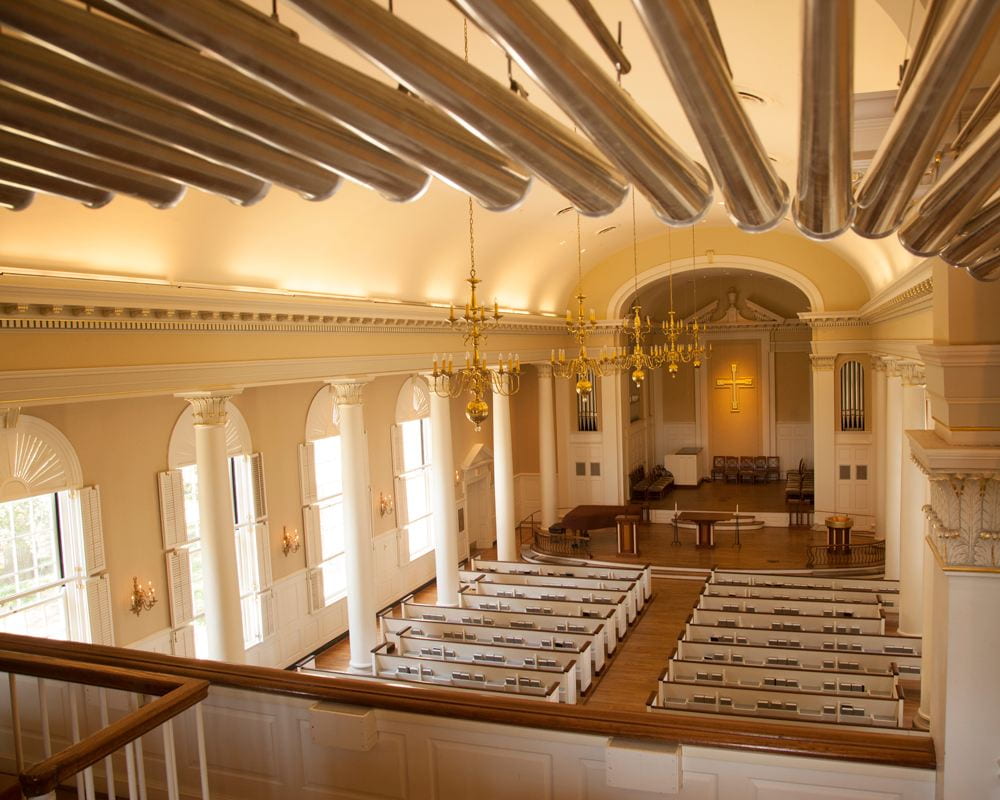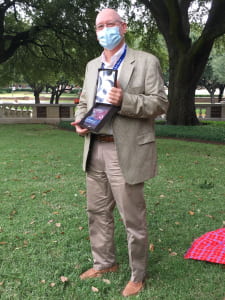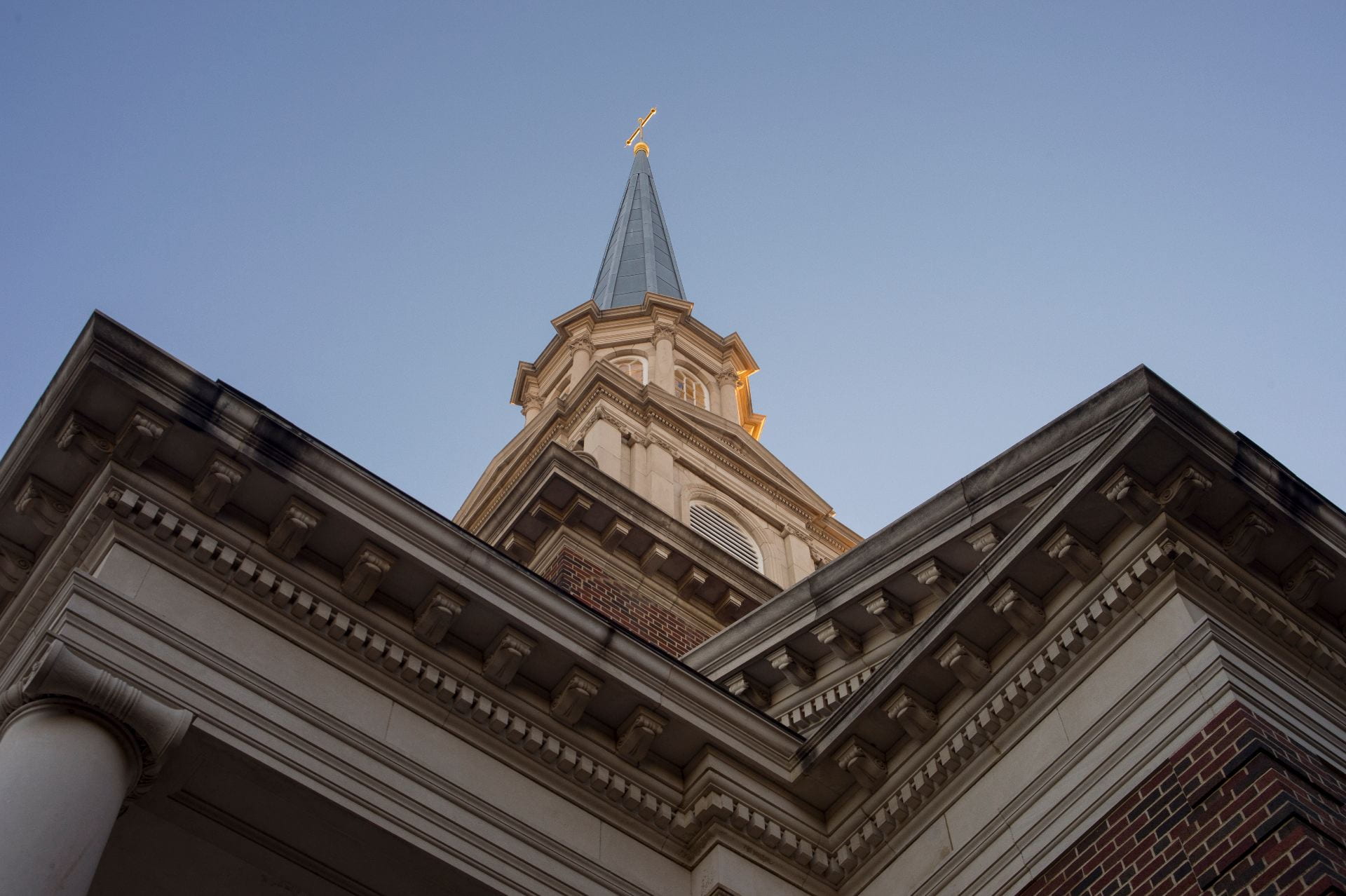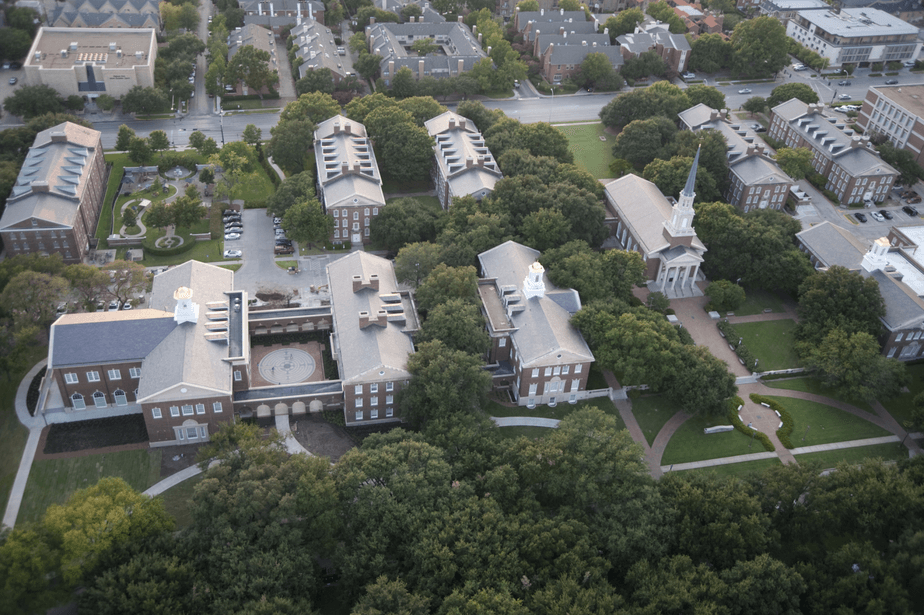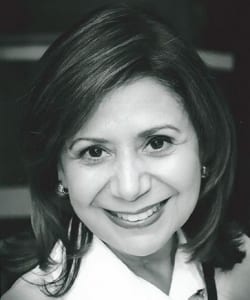Due to the pandemic, campus life looks different this fall at Perkins School of Theology. But while the situation is far from ideal, the educational process is moving forward, and the “new normal” has even yielded a few unexpected blessings.
Students attending at the Dallas campus had the option of taking classes in person or online this fall. Some classes are now offered entirely online; others are taught “HyFlex,” an approach that combines in-class instruction as well as online, with each student choosing the option they prefer for each class. Of the 159 students in master’s degree programs in Dallas, almost three-fourths – 115 students – selected the remote learning option.
The new approach is a work-in-progress and still undergoing improvement.
“We did a survey after the first week of classes and learned that students were very thankful that we were offering the possibility of being in the classroom,” said Tracy Anne Allred, Assistant Dean of Student Life. “However, they were honest, too. Sometimes the technology doesn’t serve both those in class and those who are Zooming in equally. We’ve made some needed tweaks to that, and it’s working better now.”
Allred added that having the online option gives students more flexibility, even for those who prefer to attend in person. If a student doesn’t feel well, or a babysitter cancels at the last minute, they have the option to join online.
“I get a real sense that students are thankful to have the option of in person or remote,” she said. “They understand it’s not ideal, but they like having options. And learning is definitely happening.”
“I’m appreciative of the faculty and staff that are so willing to be flexible,” said Daniel Curry, an M.Div. student in Houston-Galveston (expected graduation 2021). “They are journeying with us as we take this one day at a time. This is unchartered territory for everyone.”
Increased Enrollment
Despite the limitations, enrollment is up, almost 15 percent compared to the fall of 2019. A total of 319 students enrolled at Perkins this fall, including 58 doctoral students and 261 students in master’s programs. Of those, 103 are part of the Houston-Galveston (H-G) Extension program, an increase of 35 percent compared to Fall 2019.
Students in the H-G program – which normally meets in person twice a semester – may be feeling the isolation most keenly. Because most travel to Houston or Galveston for classes, those in-person meetings were eliminated for safety reasons.
“It’s been difficult, because they haven’t seen each other since last fall,” said Hugo Magallanes, director of the Houston-Galveston program. “In typical years, each semester begins and ends with face-to-face meetings. That’s one of the key points of the program – it’s hybrid, it’s the best of both worlds. They are missing that face to face component.”
Magallanes noted, however, that many H-G students are now participating in online Perkins student gatherings, including chapel and Community Hour at Perkins (CHAP) which, before the pandemic, were held in person at the Dallas campus and thus available only to Dallas students. Now that they’re online, H-G students can join in.
“We’re definitely seeing more attendance at community events, especially our community worship on Wednesdays and Thursdays,” said Allred. “We’re seeing a nice healthy number from our H-G program regularly attending worship as well as CHAP.”
The pandemic has also yielded a few surprising advantages. Faculty are, by necessity, becoming more adept and more comfortable with online teaching. Two international students are now able to attend Perkins remotely from their home countries, in Kenya and India.
Classes that might not “make” due to insufficient enrollment are now drawing from a larger pool — both Dallas and H-G students – and attracting enough students to form a class. That also means that H-G students now have the option of taking classes that were previously taught only in person in Dallas, and thus available only to Dallas students.
“An unexpected blessing has been the ability to study under professors we wouldn’t be able to otherwise,” said Julie Paulick, an M.Div. student (expected graduation May 2022) in the H-G program. “This semester I have been able to take Old Testament with Dr. Jack Levison, as well as a joint offering from Dr. Dallas Gingles and Dr. Rebekah Miles.”
A Challenge for Faculty
Some of the biggest challenges this fall were posed for faculty members, who must adapt to online and HyFlex teaching, re-format their class materials and tweak their teaching styles.
Alyce McKenzie, Le Van Professor of Preaching and Worship, is teaching two classes via HyFlex; she’s become more aware of the need to vary the format of the class often, moving from lecture to video to breakout rooms, to keep students engaged. Frequent breaks, too, are more important on Zoom than in face-to-face classes.
“Teaching HyFlex adds another layer of preparation and suspense,” said McKenzie. “Will the tech work flawlessly? Will there be a minor glitch this week? It calls us to rise to the challenge with an eye on our goal of making it the best educational experience possible for both in person and remote students.”
Sze-kar Wan, Professor of New Testament, is teaching two courses, Greek and New Testament I, online this semester.
“This is the first time I’ve taught a language course remotely,” he said. “It is working much better than I thought. I’m very encouraged by what I’m seeing.”
To accommodate the new format, Wan added that he has reduced the class’s workload slightly, something he suspects students don’t mind.
“We’ve covered a little bit less material than I normally do,” he said. “That works out to the benefit of the students. I tend to stuff too much into my Greek classes anyway.”
Teaching New Testament I – a course Wan has taught for years – requires more work on his part this semester.
“This semester, I have had to re-package the material into more bite-sized chunks. I have to anticipate students’ questions more. It’s pedagogically more challenging but it’s nothing that that can’t be solved.”
Wan adds that he misses teaching in person and seeing the “aha” expressions on students’ faces in real-time. To make up for that in-person experience, he schedules several small-group meetings via Zoom throughout the semester. “That’s a lot more work because I have to repeat each small group four times to accommodate all the students, but it’s worth it.”
“On Zoom, I can’t jump up and down or dance on the table, which I’ve been known to do to make a point,” he said.
Some faculty have also taken pains to make sure that the communal aspects of classes are incorporated as well.
“I have students offer a self-introduction paragraph or video on Canvas, so everyone has a sense coming into the semester about their classmates’ background and interests,” McKenzie said.
Wan, however, says he’s not too worried about students’ abilities to form community virtually.
“In the age of Facebook, they know what online socialization looks like,” he said. “Students already know how to do it without being physically present with each other.”
Roy Heller, Professor of Old Testament, is teaching two classes this semester: one remotely and one online. The remote course meets weekly via Zoom and proceeds much as it would if the course were taught face-to-face. The online course, however, is taught asynchronously — the entire course is laid out beforehand, then opened a week at a time for students to complete the modules. That approach is considerably more challenging; Heller says he had to completely recreate the course from the ground up to fit the new format.
“It is, in short, a different course from the one I would normally teach week in and week out during a normal semester, he said. “Teaching the online course requires a tremendous amount of time to prepare, record videos, edit videos, upload, write curricula, prepare quizzes and weekly assignments. I have, honestly, spent as much time working on one semester of my course as I have spent writing entire books. No exaggeration.
O. Wesley Allen, Jr., Lois Craddock Perkins Professor of Homiletics, says he has figured out something that does not work in online teaching: writing on the board in class. Students joining online can’t see the board well enough. To compensate, he must make sure all of the points he wants to make are included in the PowerPoint he creates before class.
Still, overall, “I think it’s going as well as it could,” he said. “We didn’t make the move [to online teaching] for pedagogical reasons but for health reasons. Trying to make sure we’re offering good teaching, good learning, good community is a challenge, but it is not impossible.”
Inspiration for Innovation
Just as necessity is the mother of invention, the pandemic has become the impetus of innovation. Members of the Perkins community are devising new ways to engage students given the current situation.
In response to the challenges that churches are facing during the pandemic, Robert Hunt and Marcell Steuernagel are teaching a new course, fully online, Social Innovation: Creating World Changers with Emerging Digital Ministries. Read about the course here.
The Office of Student Life, for example, began hosting weekly online study halls where students gather virtually to connect, chat, discuss assignments, and get to know each other.
“There’s not a lot of studying going on in the study hall,” said Allred. “It’s mostly free-flowing conversation. People talk about their pets or their kids. One student pulled out his French horn and played for us. It’s really wonderful way for students to connect, and there’s never a dull moment.”
The Study Halls typically start at 8:30 p.m. and often run on until midnight or later.
“It’s a place for community, for getting to know each other,” Allred said. “It has been a wonderful experiment.”
